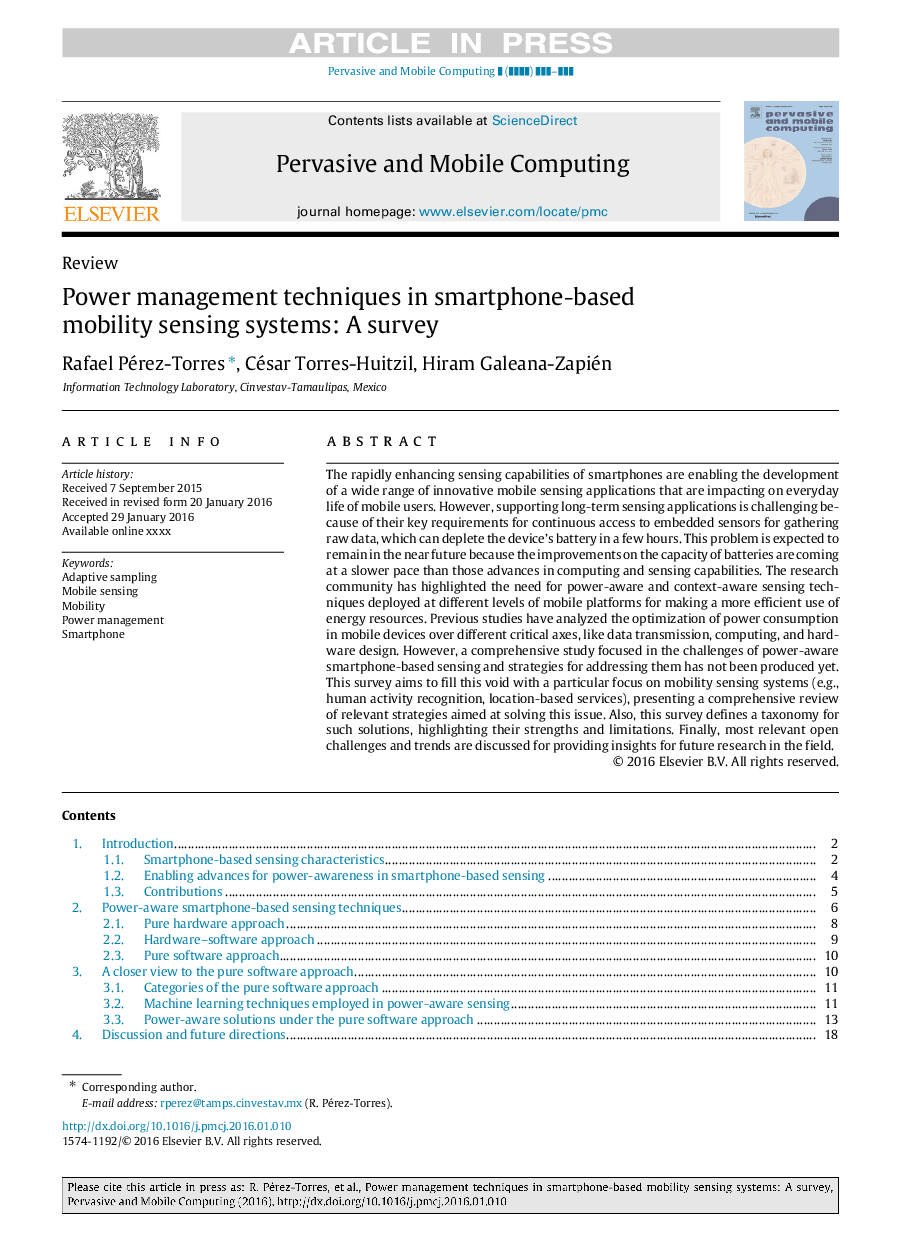| Article ID | Journal | Published Year | Pages | File Type |
|---|---|---|---|---|
| 4957567 | Pervasive and Mobile Computing | 2016 | 21 Pages |
Abstract
The rapidly enhancing sensing capabilities of smartphones are enabling the development of a wide range of innovative mobile sensing applications that are impacting on everyday life of mobile users. However, supporting long-term sensing applications is challenging because of their key requirements for continuous access to embedded sensors for gathering raw data, which can deplete the device's battery in a few hours. This problem is expected to remain in the near future because the improvements on the capacity of batteries are coming at a slower pace than those advances in computing and sensing capabilities. The research community has highlighted the need for power-aware and context-aware sensing techniques deployed at different levels of mobile platforms for making a more efficient use of energy resources. Previous studies have analyzed the optimization of power consumption in mobile devices over different critical axes, like data transmission, computing, and hardware design. However, a comprehensive study focused in the challenges of power-aware smartphone-based sensing and strategies for addressing them has not been produced yet. This survey aims to fill this void with a particular focus on mobility sensing systems (e.g., human activity recognition, location-based services), presenting a comprehensive review of relevant strategies aimed at solving this issue. Also, this survey defines a taxonomy for such solutions, highlighting their strengths and limitations. Finally, most relevant open challenges and trends are discussed for providing insights for future research in the field.
Related Topics
Physical Sciences and Engineering
Computer Science
Computer Networks and Communications
Authors
Rafael Pérez-Torres, César Torres-Huitzil, Hiram Galeana-Zapién,
